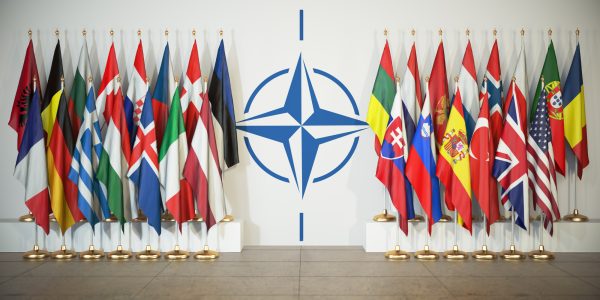
Last week the news broke that the North Atlantic Treaty Organization (NATO) intends to open a liaison office in Japan, the first of its kind in Asia, to facilitate consultations with Japan and other close security partners in the region, including South Korea, Australia, and New Zealand. NATO and Japan also set to upgrade their cooperation in the areas of cyberspace, disinformation, and emerging and disruptive technologies, with the two sides expected to sign an Individually Tailored Partnership Program ahead of the July 11 and 12 NATO Summit in Vilnius, Lithuania. These announcements follow NATO’s first-ever inclusion of China in its Strategic Concept, released last year, which warned Beijing’s “stated ambitions and assertive behavior presented “systematic challenges” to transatlantic security.
Although Indo-Pacific countries are seemingly receptive to the idea, NATO’s greater involvement in the region may well do more harm than good to security and stability. From a military perspective, European navies and air forces lack the capabilities to meaningfully contribute to deterrence in the region. Only two European allies – France and the United Kingdom – maintain a regular maritime presence in the region. Even these two major European maritime powers are incapable of deploying more than seven frigates and two destroyers to the region for an extended period.
Similarly, European air forces do not have an independent capacity to project airpower over vast distances. They possess relatively few fifth-generation aircraft and long-range strike capabilities, not to mention critical enablers, such as aerial refueling, transport, and intelligence, surveillance, and reconnaissance (ISR) capabilities. Put simply, extending NATO’s role to the Indo-Pacific region is overly ambitious, given the hard realities of European military capabilities.
It also creates serious doubts about the strategic wisdom of worsening the security dilemma for such a small contribution to conventional deterrence capabilities vis-à-vis China. To be sure, NATO’s widening gaze toward Beijing is a defensive reaction to China’s growing power and strategic ambition, particularly its declaration of a “no limits” partnership with Russia. “We have to address the fact that China is coming closer to us” in cyberspace, in the Arctic, and even in Europe, NATO Secretary-General Jens Stoltenberg has said, adding, “we don’t regard China as an enemy or an adversary.”
Even though NATO’s motives are defensive, its policies and associated rhetoric may appear threatening to China and thereby provoke its leaders to act more aggressively toward NATO and its member countries.
Indeed, Beijing has grown increasingly suspicious of Washington’s intentions and fearful that its efforts to “grow the connective tissues” between its allies and partners in Europe and the Indo-Pacific is an attempt to contain or “encircle” China. “NATO’s continual eastward expansion in the Asia-Pacific, interference in regional affairs, attempts to destroy regional peace and stability, and push for bloc confrontation calls for high vigilance from countries in the region,” a spokesperson for the Chinese Foreign Ministry warned last week, responding to reports about NATO’s plans to establish a liaison office in Japan.
Chinese mistrust of NATO’s intentions is longstanding, including opposition to NATO’s expansion eastward and the extension of its mission to conduct out-of-area operations. Beijing has also not forgotten NATO’s accidental bombing of its embassy in Belgrade in 1999.
Regardless of Brussels’ peaceful intentions, NATO’s expanding military presence and practical cooperation with Indo-Pacific countries will likely be interpreted as offensive and threatening and, in turn, elicit backlash and counterbalancing, including increased Sino-Russian collaboration and cooperation. The result will be a destabilizing action-reaction cycle with a reduction in stability and security in Europe and the Indo-Pacific.
A smarter and more effective strategic approach would be to make the European Union – not NATO – the locus of Europe’s engagement with the region, including its efforts to address problematic Chinese behavior on issues of global governance, trade and investment, and technological cooperation. Indeed, Indo-Pacific countries will need Europe’s diplomatic influence and economic, financial, and technological resources as a counterweight to Beijing’s power and influence. The challenge is to find a balanced approach, one that gives China a voice on global governance issues and considers the risks and opportunities and economic and technological competition with China, while pushing back against Beijing’s promotion of authoritarian rules and norms and unfair trade practices.
Competition with China may be inevitable, but it can also be bounded. For NATO, this means scaling back its global ambitions and recognizing the European Union – not NATO – ought to take the lead in helping to balance against China’s power and influence in the political-economic domains.
Why NATO’s Planned Liaison Office in Japan Is a Bad Idea
Source: Frappler

0 Comments